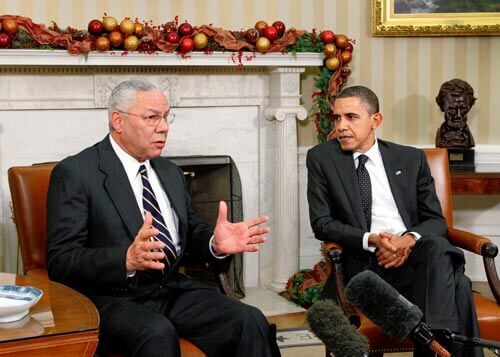Not enough can ever be said of the long list of names from French, Dutch, Spanish and the English Caribbean nations who have left indelible imprints on the continents and nations they settled.
The United States is home to millions of Caribbean nationals. The U.S. Census’ conservative estimate claims a total of 3.5 million immigrants or 9 percent of the total foreign-born population. More than 90 percent of these immigrants came from Cuba, the Dominican Republic, Jamaica, Haiti, and Trinidad and Tobago. Cuban immigrants in particular have been among the top ten foreign-born groups in the United States each decade since 1970. Distinguished in politics, entertainment, sports and science Caribbean achievers include: former US Secretary of State and Army General Colin Powell, Congresswoman Shirley Chisholm, Usain Bolt, Brian Lara, Byron Lee, Tessanne Chin, Cicely Tyson, Cool DJ Herc, Bob Marley, Rihanna, Nicky Minaj, Marcus Mosiah Garvey, Wyclef Jean, Slinger Francisco, Calypso Rose, actors Sidney Poitier, Sheryl Lee Ralph, Madge Sinclair and Harry Belafonte with myriads more to be lauded for their trailblazing contributions to enhancing progress.
During Caribbean Heritage Month as proclaimed by President Barack Obama, Caribbean Life acknowledges and recognizes a few pioneering Caribbean immigrants to England, France, Canada and the USA who have distinguished themselves as trailblazers.
Lesser advanced in the media is the political contributions of Mary Eugenia Charles from Dominica. Although hailed as the first female prime minister in the Caribbean region, in fact she was the second after Lucinda da Costa who was elected the prime minister of the Netherland Antilles (former Dutch Antilles). Known now as the ABC Islands of Aruba, Bonaire and Curacao, five municipalities (Saba and Sint. Eustatius) now comprise the Dutch-speaking territories.
Jamaican Diane Abbott was the first Black elected to the House of Commons in England, 1987. Acclaimed Jamaican dub poet Linton Kwesi Johnson continues to make an impression in England by voicing the concerns of the down-trodden.
Claude McKay was a key figure in the Harlem Renaissance. The Jamaica-born poet penned the poem “If We Must Die.” He also wrote “Home To Harlem” and “Harlem Shadows.”
Haiti-born Michaelle Jean was the first Black to be named Governor General of Canada. Her tenure from 2005 to 2010 was visited by America’s first Black President Barack Obama.
Trinidad & Tobago’s CLR JAMES was a playwright, author and authority on the game of cricket.
Oliver Samuels, a comedian/actor who consistently hails a Caribbean genre that spotlights Jamaican patois.
Franz Fanon, born in Martinique, the writer and freedom fighter wrote “The Wretched of the Earth”
From Haiti, Dutty Boukman (Jamaican-born Haitian), freedom fighters and liberators Toussaint L’Ouverture, Jean Jacques Dessaline Henri Christophe and dictator Francois Duvalier.
Sir Grantley Adams – Barbadian proponent for a united Caribbean region. He was Prime Minister of the West Indies Federation from 1958 to 1962.
Michael Manley was Jamaica’s fourth Prime minister. A proponent of democratic socialism, he advanced a progressive political policy that advocated African identity and independence from colonial tendencies. His father Norman was one of the founding fathers of the nation and was elected Premier of the island.
Sir Alexander Bustamante was elected Jamaica’s first Prime Minister. His leadership paved a course for the rest of the English-speaking Caribbean to follow when his island-nation became the first independent nation in the region in 1962.
Sir Eric Williams was the first Prime Minister of Trinidad & Tobago (1962-1981). Known by his writings as the “Father of a Nation” he also penned “Capitalism & Slavery.”
Walter Rodney is Guyana’s best-known historian and revolutionary.
Derek Walcott is St. Lucia’s best ambassador. He was the first Nobel winning poet laureate from the Caribbean.
Prime Minister Maurice Bishop of Grenada (1979-1983) was a revolutionary who along with his People’s Revolutionary Movement led a coup against the Grenadian government to form the People’s Revolutionary Government.
Fidel Castro established communist rule on the Spanish island of Cuba by leading a guerilla attack against the government. He was the longest-ruling leader (1959 to 2008) in the Caribbean region. He surrendered his leadership to his brother Raul who still governs the nation.
























